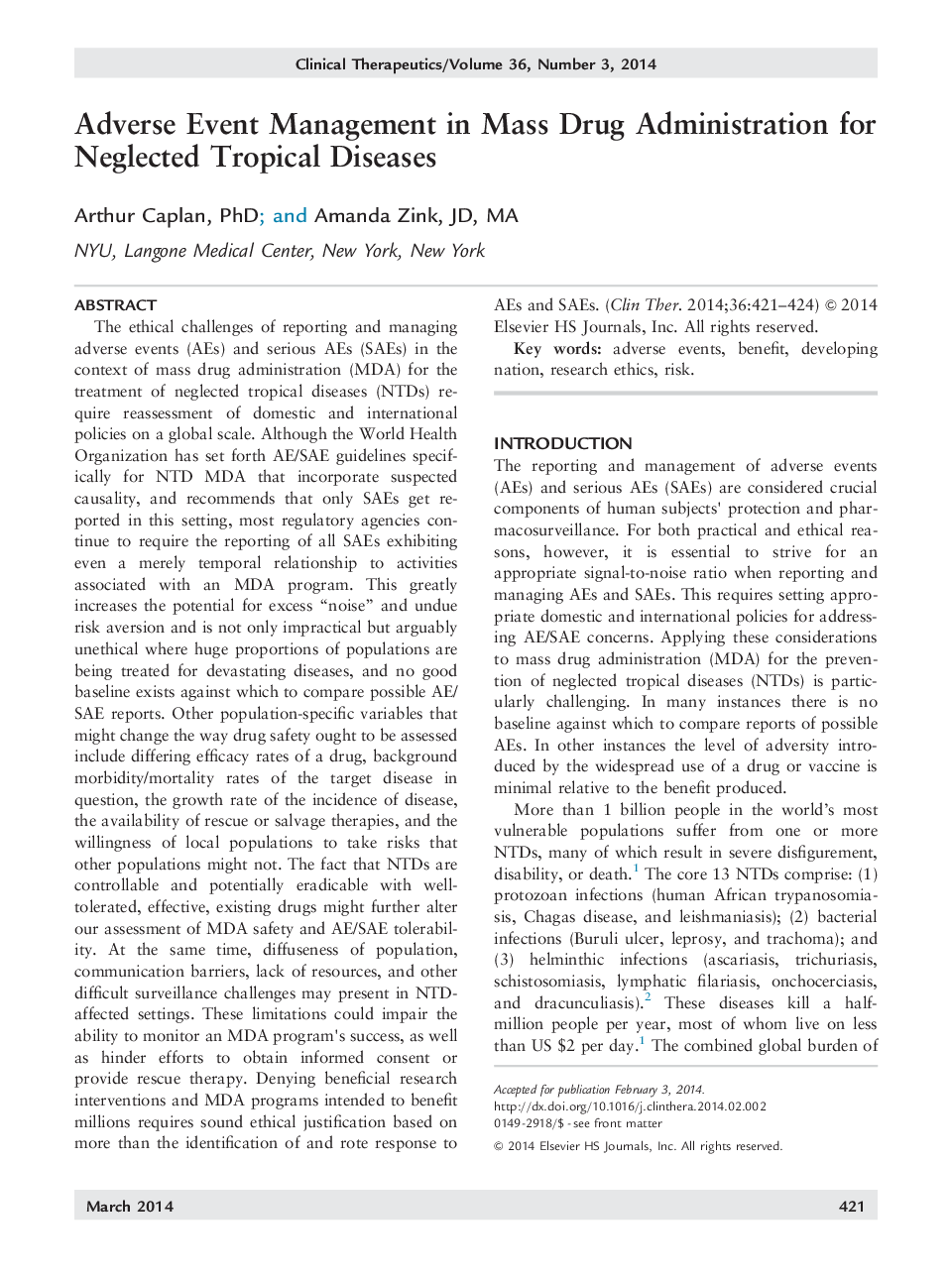| کد مقاله | کد نشریه | سال انتشار | مقاله انگلیسی | نسخه تمام متن |
|---|---|---|---|---|
| 5825360 | 1119895 | 2014 | 4 صفحه PDF | دانلود رایگان |
عنوان انگلیسی مقاله ISI
Adverse Event Management in Mass Drug Administration for Neglected Tropical Diseases
ترجمه فارسی عنوان
مدیریت رویدادهای ناخواسته در اداره کل مواد مخدر برای بیماری های گرمسیری نادیده گرفته شده
دانلود مقاله + سفارش ترجمه
دانلود مقاله ISI انگلیسی
رایگان برای ایرانیان
کلمات کلیدی
عوارض جانبی، سود، کشور در حال توسعه، اخلاق تحقیق، خطر،
موضوعات مرتبط
علوم پزشکی و سلامت
پزشکی و دندانپزشکی
پزشکی و دندانپزشکی (عمومی)
چکیده انگلیسی
The ethical challenges of reporting and managing adverse events (AEs) and serious AEs (SAEs) in the context of mass drug administration (MDA) for the treatment of neglected tropical diseases (NTDs) require reassessment of domestic and international policies on a global scale. Although the World Health Organization has set forth AE/SAE guidelines specifically for NTD MDA that incorporate suspected causality, and recommends that only SAEs get reported in this setting, most regulatory agencies continue to require the reporting of all SAEs exhibiting even a merely temporal relationship to activities associated with an MDA program. This greatly increases the potential for excess “noise” and undue risk aversion and is not only impractical but arguably unethical where huge proportions of populations are being treated for devastating diseases, and no good baseline exists against which to compare possible AE/SAE reports. Other population-specific variables that might change the way drug safety ought to be assessed include differing efficacy rates of a drug, background morbidity/mortality rates of the target disease in question, the growth rate of the incidence of disease, the availability of rescue or salvage therapies, and the willingness of local populations to take risks that other populations might not. The fact that NTDs are controllable and potentially eradicable with well-tolerated, effective, existing drugs might further alter our assessment of MDA safety and AE/SAE tolerability. At the same time, diffuseness of population, communication barriers, lack of resources, and other difficult surveillance challenges may present in NTD-affected settings. These limitations could impair the ability to monitor an MDA program׳s success, as well as hinder efforts to obtain informed consent or provide rescue therapy. Denying beneficial research interventions and MDA programs intended to benefit millions requires sound ethical justification based on more than the identification of and rote response to AEs and SAEs.
ناشر
Database: Elsevier - ScienceDirect (ساینس دایرکت)
Journal: Clinical Therapeutics - Volume 36, Issue 3, 1 March 2014, Pages 421-424
Journal: Clinical Therapeutics - Volume 36, Issue 3, 1 March 2014, Pages 421-424
نویسندگان
Arthur PhD, Amanda JD, MA,
